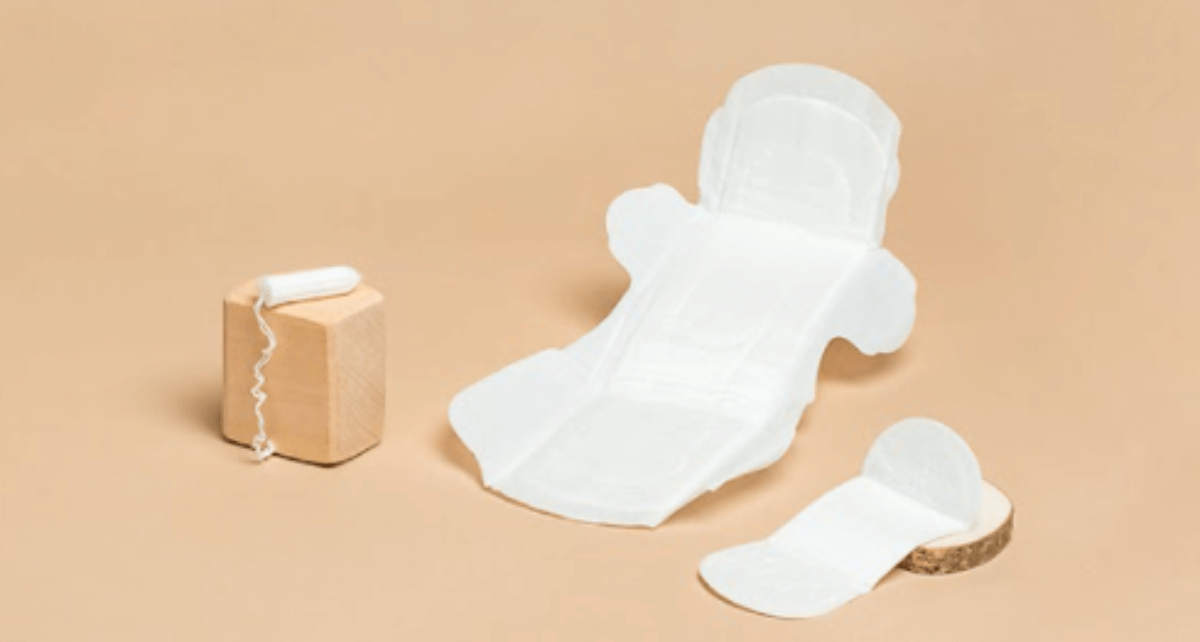April is Earth Month and the theme for 2025 is on renewable energy. This might bring to mind things like solar panels and wind turbines. But what does renewable energy mean when it comes to period care?
Most pads and tampons from big brands are full of plastic derived from petroleum—some up to 90%. That plastic comes from the invasive extraction of fossil fuels, which are non-renewable. Once they’re gone, they’re gone. Plus, petroleum-based plastics can take hundreds of years to break down. And along the way, they leave behind waste, pollution, and chemicals that harm the environment and our health.
So what’s the answer? Reusable period care products, like underwear and cups, are great—but not always practical. We believe there’s a better way. At joni, we create sustainable period care made with renewable materials—because we think your period products should be safe for your body and the planet.
🚫 The Problem with Mainstream Period Products
We’re not here to demonize mainstream plastic period care products because it’s a matter of accessibility and bodily agency: you choose what you have access to and what works for your body.
But as we’re in the business of better period care and period equity, we’re doing what we can to provide access to our sustainable products, whether that’s through workplace period care or competitive pricing on our products at the store and online. Here’s why we’re doing this:
-
Most pads and tampons are made from plastic—the same stuff used in grocery bags and water bottles.
-
They create a huge amount of waste: in some countries, that’s hundreds of thousands of tonnes every year.
-
Some products contain chemicals and toxins that can end up in our bodies and ecosystems.
-
Manufacturing these products uses a lot of water, energy, and pesticides—especially cotton pads and tampons.
-
It’s estimated that the carbon footprint of disposable menstrual products adds up to 245,000 tonnes of CO₂ a year.
These products were made for convenience, not sustainability—or transparency.
🌿 Why joni is Different
We designed our period care to protect the planet, not pollute it. Bonus! It also means disposable pads and tampons that are also better for you. Here’s how:
-
We use bamboo, one of the fastest-growing plants on Earth. It needs way less water than cotton and no harmful pesticides.
-
Our wrappers and top sheets are made from cornstarch-based bioplastic, not petroleum-based plastic.
-
Our pads and tampons are 94% biodegradable. That means they break down much faster than mainstream products.
-
Our products are made in a closed-loop system, where the chemicals used in manufacturing are safely reused again and again—leaving behind no toxins.
We’re also FSC-certified, which means our wood materials come from responsibly managed forests, and BPI-certified, meaning our products meet composting standards. See more about our materials and certifications in our FAQs.
💡 Not All Compost Bins Are Created Equal
Under the right conditions, joni pads biodegrade by up to 94% within 12 months. And joni tampons? They’re 100% biodegradable. Technically, both joni pads and tampons are compostable.
However, many Canadian municipalities currently classify soiled menstrual products as contaminants, which means they aren’t accepted in many composting programs.
Toronto is a notable exception. The city successfully composts joni products using advanced anaerobic and aerobic systems that produce high-quality Category A compost.
In contrast, cities like Vancouver face barriers due to limited infrastructure, strict regulations, and public health concerns. Most composting systems are designed for food and yard waste, not for processing soiled hygiene products.
We recently teamed up with Propel Impact to better understand this issue. They highlighted that:
-
Even if a product is certified compostable, it may be rejected if local infrastructure can't handle it.
-
Compostable plastics and fiber blends need specific processing conditions not available everywhere.
-
Municipal programs often base acceptance on their existing capabilities—not on universal compostability standards.
So, what’s the path forward?
With the right infrastructure and disposal guidelines in place, industrial composting can safely process soiled period products. That’s why we’re committed to:
-
Advocating for upgrades to municipal composting systems
-
Raising awareness that menstrual products are safe to compost under proper conditions
-
Supporting safety testing to ensure compost meets quality standards for reuse
While most cities don’t yet accept soiled period products in green bins, even if joni products end up in the trash, they still break down naturally—unlike conventional plastic pads that can take centuries to decompose.
We’re working toward more sustainable solutions every day.
💪 More Than a Pad
We’re not just here to change what goes in your underwear—we’re here to change the system.
joni is a certified B Corp, which means we meet high standards for environmental and social impact. It also means we’re accountable—we get recertified every few years and keep pushing to do better.
We give back 5% of every purchase to help fight period poverty. We work with amazing grassroots organizations across Canada to support people who don’t have access to safe, healthy period care.
Some of our partners have even grown their own outreach because of our support. And we make it easy for workplaces and community spaces to provide free products through our free-vend dispensers—no coins, no shame, just access.
That’s something the big brands can’t (or won’t) do.
🌎 Small Change, Big Impact
Choosing joni means:
-
Less plastic in landfills
-
Toxin-free products for your body
-
More support for communities
-
A future that’s more fair and sustainable—for everyone who menstruates
This Earth Month, let’s take one more step toward a better future. Because your period has power.
Sources:
Wired – Sanitary Products & Plastic Waste
IKHAPP – Tackling Plastic Pollution
Sustainability StackExchange – Bamboo vs. Cotton
OEKO-TEX – What Their Labels Mean
PMC – Environmental Contaminants in Period Products
FSC
BPI
